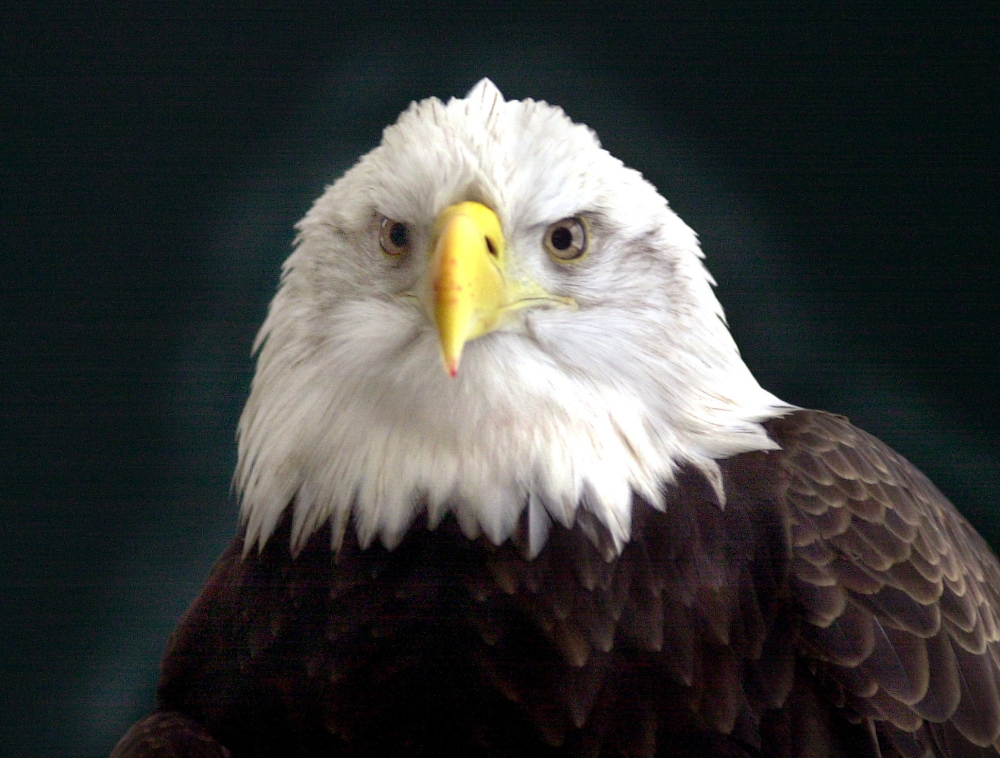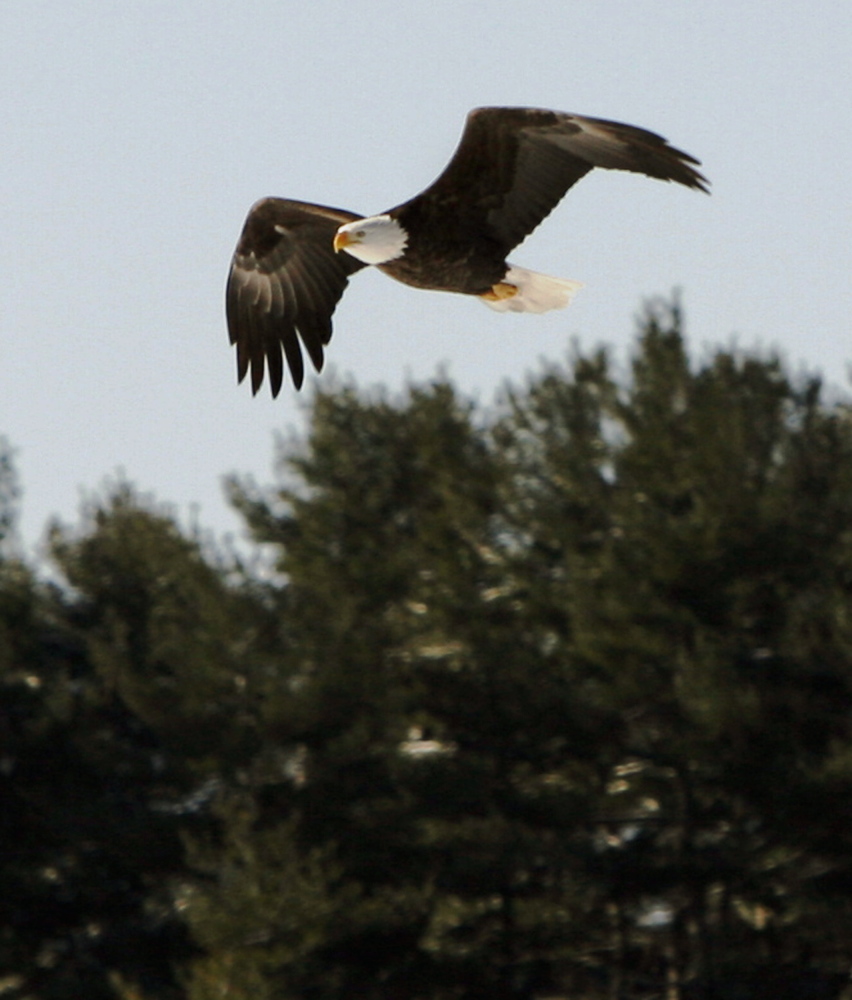Two environmental groups are going head to head over the impact on wildlife and the future benefits of wind energy development in Maine.
Friends of Maine’s Mountains challenged Maine Audubon on Thursday to retract a recent report that says wind energy is sometimes compatible with wildlife, and to acknowledge funding it receives from the wind power industry.
Maine Audubon defended its report, “Wind Power and Wildlife in Maine,” and questioned whether the leaders of Friends of Maine’s Mountains fully understand its parameters and recommendations.
Maine Audubon, a nonprofit based in Falmouth, released a report Dec. 4 saying that the state has 1.1 million acres that are windy enough for power generation, and that wind turbines could be developed on 84 percent of that area with minimal impact on some wildlife and habitat resources.
Friends of Maine’s Mountains questioned why Maine Audubon would endorse the installation of more “bird-killing machines” based on a study that – in its view – failed to throughly investigate the benefits of wind power and its effects on migratory birds and other wildlife.
“The Audubon brand is a strong environmental brand,” said Richard McDonald, a board member of Friends of Maine’s Mountains. “It’s like giving wind-energy development the Good Housekeeping seal of approval.”
Friends of Maine’s Mountains is a Weld-based nonprofit that has opposed wind-energy projects and advocates on behalf of natural resources, reliable energy and affordable power.
Michelle Smith, Maine Audubon’s spokeswoman, said she was surprised that Friends of Maine’s Mountains came out against the report, because it recommends that “any land-based wind development in the mountainous areas of northern and western Maine and along our coast be carefully studied.”
“We’re not advocating that wind turbines can be sited anywhere,” Smith said. “The goal of this report is to start a dialogue about where we can rightly site wind turbines in Maine that has the least impact on wildlife and its habitat.”
Smith noted that state officials have set a goal to have capacity to produce 3,000 megawatts of land-based wind energy by 2030, which would require adding 600 wind turbines to Maine’s landscape. The state now has 200 turbines.
ARGUING OVER REPORT FINDINGS
Last week, the U.S. Department of the Interior decided to extend the period in which wind power companies are permitted to kill or injure bald or golden eagles with wind turbines without penalty from five to 30 years.
The decision was immediately controversial. Although bald eagles are no longer listed as threatened or endangered, bald and golden eagles are still protected species.
“Instead of balancing the need for conservation and renewable energy, Interior wrote the wind industry a blank check,” said David Yarnold, president and CEO of the National Audubon Society.
On Thursday, Friends of Maine’s Mountains asked Maine Audubon, which is independent from the national group, to reconcile the recommendations in its wind energy report with its advocacy for wildlife.
“I’m not sure where (Friends of Maine’s Mountains) is going with that,” Smith responded. “We would never support the killing of eagles.”
The friends group also concluded that Maine Audubon’s report gives the wind power industry a “free pass” to develop projects without regard for their impact on wildlife. The group’s leaders urged Maine Audubon to re-evaluate its association with wind energy companies.
Among Maine Audubon’s top corporate donors is First Wind, a renewable-energy company that has developed and operates 16 wind power projects in Maine, New York, Vermont, Utah, Washington and Hawaii.
According to Maine Audubon’s website, the Boston-based company is an Eagle-level donor, along with L.L. Bean and Maine Magazine, each having contributed more than $10,000 this year.
Friends of Maine’s Mountains indicated that corporate donors that gave at lower levels also benefit from Maine Audubon’s support for wind power development, including Falcon-level ($5,000-plus) donor Reed & Reed general contractors and Osprey-level ($2,500-plus) donor Central Maine Power Co.
The friends group also said in a news release Thursday that Maine Audubon’s report is “deficient in necessary scientific rigor required to conclude that industrial wind turbines are not detrimental to Maine’s wildlife and their habitats.”
The group called on Rebecca Holberton, a professor of biology and ecology at the University of Maine who saw a lack of reliable field study data and collision-risk assessment in Maine Audubon’s report.
Holberton noted that the report is “replete with disclaimers” about the limits of its findings, and questioned whether it should have been presented as a valid guide for siting wind turbines.
NOT A COMPREHENSIVE ANALYSIS
Susan Gallo, the wildlife biologist at Maine Audubon who wrote the report, acknowledged that the study is based on existing data, such as wildlife habitat maps. She said the report doesn’t eliminate the need for site-by-site analysis of wind energy proposals, but it does balance Maine Audubon’s concern for wildlife preservation and bird migration patterns with a policy goal to stem climate change and end dependence on fossil fuels.
“We knew this was going to happen,” Gallo said. “This report wasn’t a comprehensive analysis of risks to wildlife. We didn’t address whether turbines are good or bad. We support wind in concept but not every wind development. And because of that, we often get attacked from both pro-wind and anti-wind.”
Jeremy Payne, executive director of the Maine Renewable Energy Association, defended Maine Audubon’s report.
“It’s shameful (that Friends of Maine’s Mountains) continually try and stand in the way of this clean, renewable power that is creating jobs, driving investment and increasing tax revenues for municipalities, counties and state government,” Payne said in a written statement.
Payne challenged the friends group to reveal its funding sources.
“We’re a volunteer organization with about 150 members and four board members who do most of the work,” said McDonald, who is a real estate agent in Kennebunk. “We rely on individual contributions. We have about $200 in the bank right now.”
Kelley Bouchard can be contacted at 791-6328 or at:
kbouchard@pressherald.com
Twitter: @KelleyBouchard
Copy the Story LinkSend questions/comments to the editors.





Success. Please wait for the page to reload. If the page does not reload within 5 seconds, please refresh the page.
Enter your email and password to access comments.
Hi, to comment on stories you must . This profile is in addition to your subscription and website login.
Already have a commenting profile? .
Invalid username/password.
Please check your email to confirm and complete your registration.
Only subscribers are eligible to post comments. Please subscribe or login first for digital access. Here’s why.
Use the form below to reset your password. When you've submitted your account email, we will send an email with a reset code.